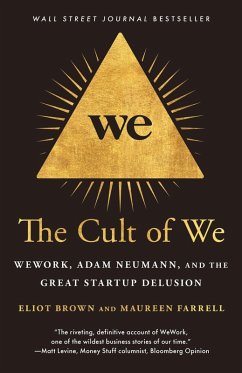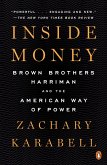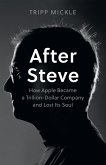The riveting inside story of WeWork and the brash founder who briefly turned it into the country's most valuable startup before his own epic unraveling, from the Wall Street Journal reporters whose scoops hastened the company's downfall. In 2001, Adam Neumann arrived in New York after five years as a conscript in the Israeli navy. Just over fifteen years later, he had transformed himself into the charismatic CEO of a company worth $47 billion--at least on paper. With his long hair and feel-good mantras, the 6-foot-five Neumann, who grew up in part on a kibbutz, looked the part of a messianic Silicon Valley entrepreneur. The vision he offered was mesmerizing: a radical reimagining of work space for a new generation, with its fluid jobs and lax office culture. He called it WeWork. Though the company was merely subleasing "amenity"-filled office space to freelancers and small startups, Neumann marketed it like a revolutionary product--and investors swooned. As billions of funding dollars poured in, Neumann's ambitions grew limitless. WeWork wasn't just an office space provider, he boasted. It would build schools, create WeWork cities, even colonize Mars. Could he, Neumann wondered from the ice bath he'd installed in his office, become the first trillionaire or a world leader? In pursuit of its founder's grandiose vision, the company spent money faster than it could bring it in. From his private jet, sometimes clouded with marijuana smoke, the CEO scoured the globe for more capital. In late 2019, just weeks before WeWork's highly publicized IPO, a Hail Mary effort to raise cash, everything fell apart. Neumann was ousted from his company--but still was poised to walk away a billionaire. Calling to mind the recent demise of Theranos and the hubris of the dotcom era bust, WeWork's extraordinary rise and staggering implosion were fueled by disparate characters in a financial system blind to its risks, from a Japanese billionaire with designs on becoming the Warren Buffet of tech, to leaders at JPMorgan and Goldman Sachs who seemed intoxicated by a Silicon Valley culture where sensible business models lost out to youthful CEOs who promised "disruption." Why did some of the biggest names in banking and venture capital buy the hype? And what does the future hold for Silicon Valley "unicorns"? Wall Street Journal reporters Eliot Brown and Maureen Farrell explore these questions in this definitive account of WeWork's unraveling.
Dieser Download kann aus rechtlichen Gründen nur mit Rechnungsadresse in A, B, BG, CZ, D, DK, EW, E, FIN, F, GR, HR, H, I, LT, L, LR, NL, PL, P, R, S, SLO, SK ausgeliefert werden.









